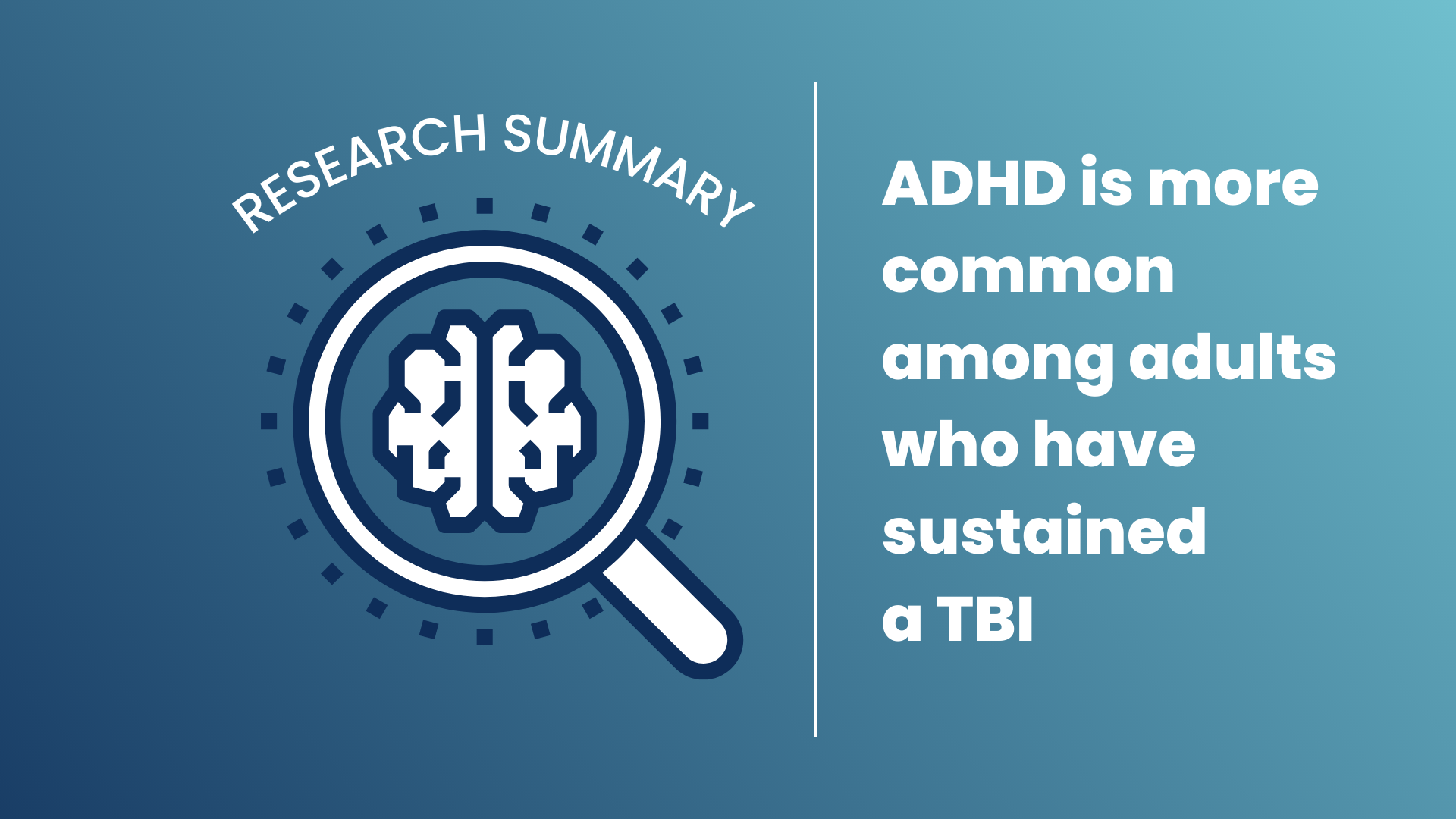
A Little Goes A Long Way
Your gift today is an investment in BrainTrust services that improve the lives of those with brain injury.
Donate Today


Attention-deficit/hyperactivity disorder (ADHD) was originally described among children and adolescents but is now recognized in the adult population as well
Research with children and adolescents suggests there may be a link between traumatic brain injury (TBI) and ADHD
ADHD may be both a potential risk factor and consequence of TBI
The goal of the study was to describe the association between lifetime TBI and ADHD in a population sample of adults.
Telephone survey of 3993 adults across Ontario, Canada (part of a larger study)
Lifetime diagnosis of TBI
Positive screen for current ADHD
Lifetime diagnosis of ADHD
17.1% of participants had a history of TBI
For the entire sample: 3.4% positive for current ADHD, 2.5% had diagnosed lifetime ADHD
Those who sustained a TBI had greater odds of also screening positively for current ADHD and of reporting a lifetime diagnosis
Among adults with brain injury, a significant proportion screen positive for ADHD and have a history of ADHD
TBI history should be assessed during screening and assessment of ADHD in adults
Since this was a cross-sectional study (i.e., conducted at 1 point in time), we can’t determine causation (i.e., whether ADHD increases risk of TBI, TBI increases risk of ADHD, or both)
Source:
Ilie, G., Vingilis, E. R., Mann, R. E., Hamilton, H., Toplak, M., Adlaf, E. M., … & Cusimano, M. D. (2015). The association between traumatic brain injury and ADHD in a Canadian adult sample. Journal of Psychiatric Research, 69, 174-179.
https://doi.org/10.1016/j.jpsychires.2015.08.004
We summarize a recently published research study every week to give you current, evidence-based brain injury information.
Related posts: